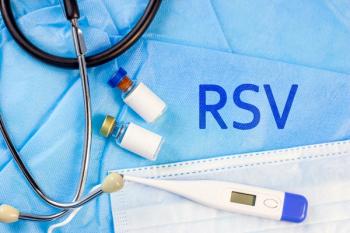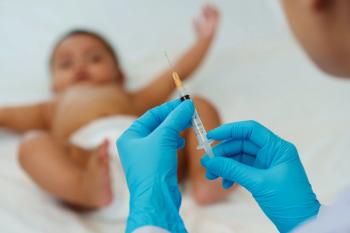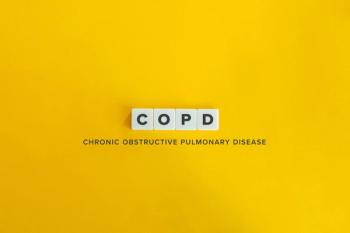
Vitamin D and COVID-19: An Evidence-Based Review
In this article, we will review the evidence describing a possible link between vitamin D and COVID-19.
In March 2020, the severe acute respiratory syndrome coronavirus 2 (SARS-CoV-2) virus was declared a global pandemic. Since then, the scientific community has been searching for methods of prevention, diagnosis, and treatment of the newfound virus. In the absence of proven treatments for coronavirus disease 2019 (COVID-19), a variety of pharmaceutical agents have been explored for their potential benefit. Alongside these pharmaceutical agents, a number of dietary supplements, such as vitamin C, zinc, and magnesium have been used as well. One particular vitamin that has caught the attention of both health care professionals and consumers is vitamin D. In this article, we will review the evidence describing a possible link between vitamin D and COVID-19.
Vitamin D
Vitamin D is a fat-soluble secosteroid hormone that is primarily responsible for the maintenance of calcium and phosphorus homeostasis, which is important for bone health.1 Vitamin D3, or cholecalciferol, is produced in the skin through exposure to sunlight. Cholecalciferol is then converted to calcidiol (25-hydroxyvitamin D3) in the liver and then further converted in the kidneys to calcitriol (1,25-dihydroxyvitamin D3), the physiologically active form of vitamin D.
In addition to the natural production of vitamin D3 in the body, exogenous vitamin D3 can also be obtained from dietary sources, such as eggs and fish, or from OTC supplements. Vitamin D2 (ergocalciferol) is another form of vitamin D that is available as prescription-only supplements. The serum concentration of vitamin D generally considered adequate for bone and overall health in healthy individuals is > 50 nmol/L (>20 ng/mL).2 It is estimated that 24% of the US population has vitamin D levels that are lower than 50 nmol/mL.3 Groups at risk for having low vitamin D levels include older adults, those with limited sun exposure, individuals with dark skin, individuals with conditions that limit fat absorption, and those who are obese or have undergone gastric bypass surgery.1
The Food and Nutrition Board at the National Academies of Sciences, Engineering, and Medicine established recommended dietary allowances (RDAs) that are necessary to maintain proper bone health and calcium metabolism in healthy individuals.1 The daily RDA for vitamin D for adults 18 through 70 years of age is 15 mcg (600 IU). The RDA for adults 71 years and older is 20 mcg (800 IU) per day.1
In addition to its impact on bone health, vitamin D’s actions on genes expressed by immune cells, coupled with circumstantial but considerable evidence linking vitamin D deficiency with COVID-19 severity, have led to speculations that vitamin D status may play a role in the management of COVID-19.4 To identify literature that examined the relationship between vitamin D and COVID-19, we conducted a search of PubMed using combinations of the following search terms: COVID, COVID-19, coronavirus, vitamin D, deficiency, SARS-CoV-2, cholecalciferol, and ergocalciferol. In order to obtain the highest level of evidence, we limited our search to meta-analyses.
Review of the Literature
In a systematic review and meta-analysis of 6 retrospective studies, Munshi et al. examined the relationship between vitamin D serum levels and COVID-19 severity and prognosis.5 The investigators reported that based on data from 376 patients who were included in the studies, a low vitamin D level was significantly associated with poorer patient outcomes and prognosis. The investigators thus concluded that diagnosis of vitamin D deficiency could be a helpful adjunct in assessing patients' potential for developing severe COVID-19.
In a systematic review and meta-analysis by Pereira et al, the investigators explored the association between vitamin D deficiency and the prevalence of COVID-19 as well as its association with disease severity.6 A total of 25 observational studies involving 8176 patients with COVID-19 were included in the meta-analysis. The investigators reported that vitamin D deficiency was not associated with the development of COVID-19 infection. In contrast, the investigators did observe a positive association between vitamin D deficiency and disease severity. The investigators also noted that there was no support for vitamin D supplementation in individuals with normal blood vitamin D values with the aim of prevention, prophylaxis, or reducing the severity of the disease.
Liu et al. performed a systematic review and identified 10 case-controlled studies that were included in a meta-analysis aimed at examining the association between COVID-19 and vitamin D deficiency; a total of 376,596 subjects were included in this analysis.7 The investigators reported that vitamin D deficiency or insufficiency was associated with an increased risk for COVID-19 infection. Furthermore, they noted that COVID-19 infected individuals had lower vitamin D levels than those who were not infected. The investigators thus concluded that low serum vitamin D status might be related to an increased risk for COVID-19.
A systematic review and meta-analysis by Shah et al. examined the relationship between vitamin D supplementation and the severity of COVID-19 illness, as measured by intensive care unit (ICU) stay and mortality outcomes.8 The meta-analysis included 2 randomized controlled trials and 1 case-control study, yielding a total of 532 hospitalized COVID-19 positive patients. The investigators identified a statistically significant lower ICU admission rate in those who were receiving supplements compared to those who were not supplemented with vitamin D. The investigators, however, reported that vitamin D supplements had no effect on mortality as compared with placebo treatment/usual care. The investigators concluded that the meta-analysis suggests a potential role for vitamin D in reducing COVID-19 severity.
Discussion and Conclusion
Numerous studies assessing a relationship between vitamin D and COVID-19 infection and severity have been published over the past several months. These studies, which suffered from significant limitations, yielded mixed results. As such, we evaluated meta-analyses published on this topic, as they typically provide the highest level of evidence, especially when individual studies result in conflicting findings.
However, the meta-analyses that we identified did not provide conclusive evidence, especially as it relates to an association between low vitamin D levels and the incidence of COVID-19 infection. Collectively, the meta-analyses did seem to suggest an association between vitamin D supplementation or adequate vitamin D levels and better COVID-19 outcomes. It is important to note, however, that similar to the individual studies, the meta-analyses suffered from major limitations, and as such, drawing conclusions from the data is difficult.
Considering the limited and conflicting evidence, guidelines addressing this topic have not advocated for routine supplementation with vitamin D to prevent or treat COVID-19. The National Institutes of Health’s COVID-19 Treatment Guidelines state that there is insufficient evidence either for or against vitamin D supplementation in the prevention or treatment of COVID-19.9 Likewise, the United Kingdom’s National Institute for Health and Care Excellence (NICE) COVID-19 Guidelines state that vitamin D supplementation should not be recommended for the sole purpose of prevention or treatment of COVID-19, except as a part of a clinical trial.10 NICE does encourage the public to follow general advice on vitamin D supplementation to maintain adequate bone health. As of the end of January 2021, more than 70 observational and interventional studies to investigate the relationship between vitamin D and COVID-19 were registered on the ClinicalTrials.gov registry. Additional and more robust data should facilitate a better understanding of this topic.
Dr Nathan is the director at the International Drug Information Center and associate professor at Arnold & Marie Schwartz College of Pharmacy and Health Sciences, Long Island University.
Dr Grossman is a drug information specialist at the International Drug Information Center and adjunct assistant professor at Arnold & Marie Schwartz College of Pharmacy and Health Sciences, Long Island University.
References
1. National Institutes of Health. Office of Dietary Supplements. Updated October 2, 2020.
2. Hossein-nezhad A, Holick MF. Vitamin D for health: a global perspective. Mayo Clin Proc. 2013;88(7):720-755. doi:10.1016/j.mayocp.2013.05.011
3. Amrein K, Scherkl M, Hoffmann M, et al. Vitamin D deficiency 2.0: an update on the current status worldwide. Eur J Clin Nutr. 2020;74:1498–1513.
4. Griffin G, Hewison M, Hopkin J, et al. Vitamin D and COVID-19: evidence and recommendations for supplementation. R Soc Open Sci. 2020;7(12):201912. Published 2020 Dec 1. doi:10.1098/rsos.201912
5. Munshi R, Hussein MH, Toraih EA, et al. Vitamin D insufficiency as a potential culprit in critical COVID-19 patients. J Med Virol. 2021;93(2):733-740. doi:10.1002/jmv.26360
6. Pereira M, Dantas Damascena A, Galvão Azevedo LM, et al. Vitamin D deficiency aggravates COVID-19: systematic review and meta-analysis. Crit Rev Food Sci Nutr. 2020;1-9. doi:10.1080/10408398.2020.1841090
7. Liu N, Sun J, Wang X, et al. Low vitamin D status is associated with coronavirus disease 2019 outcomes: A systematic review and meta-analysis. Int J Infect Dis. 2021;S1201-9712(20)32600-X. doi:10.1016/j.ijid.2020.12.077
8. Shah K, Saxena D, Mavalankar D. Vitamin D supplementation, COVID-19 & disease severity: a meta-analysis. QJM. 2021;hcab009. doi:10.1093/qjmed/hcab009
9. National Institutes of Health. COVID-19 Treatment Guidelines: vitamin D. Updated July 17, 2020. Accessed February 1, 2021.
10. National Institute for Health and Care Excellence (UK). COVID-19 Rapid Guideline: vitamin D. Updated December 17, 2020. Accessed February 1, 2021.
Newsletter
Pharmacy practice is always changing. Stay ahead of the curve with the Drug Topics newsletter and get the latest drug information, industry trends, and patient care tips.























